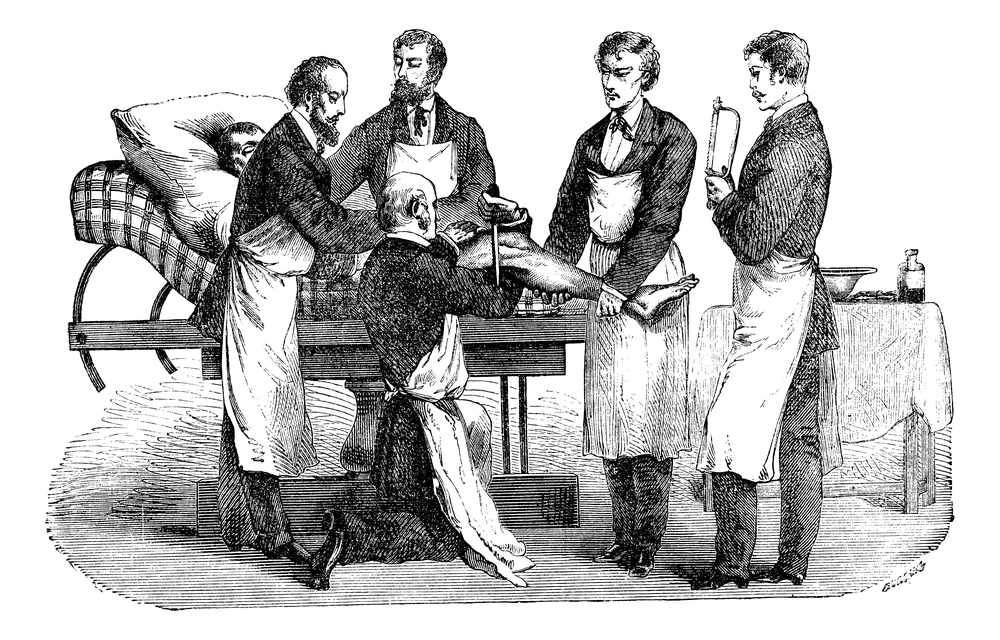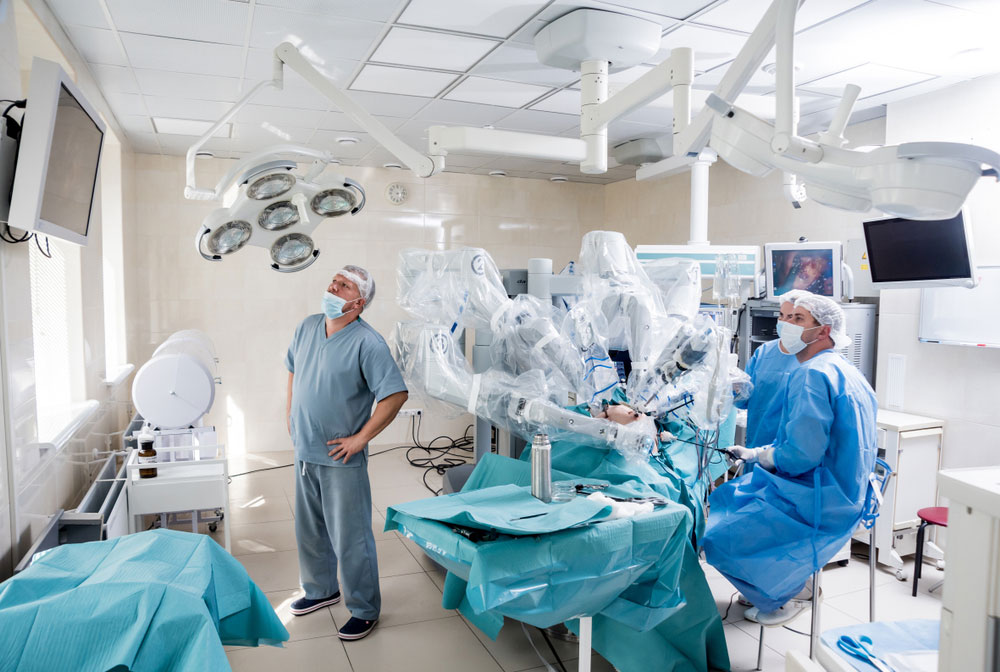Surgery
Surgery is a medical or dental specialty that employs operative manual and instrumental procedures on an individual to investigate or cure a pathological disorder such as an illness or accident, as well as to help improve body function, appearance, or to restore undesirable ruptured regions.
History of Surgery

Surgical operations such as amputations of the extremities, excision of tumors on the surface of the body, and removal of stones from the urinary bladder helped to firmly define surgery in the medical curriculum in the 18th century, with increasing knowledge of anatomy. Patients were sedated with morphine or rendered intoxicated with alcohol, bound down, and a leg amputation, for example, could be completed in three to five minutes thanks to accurate anatomical expertise. However, before the invention of ether anesthesia in 1846, the pain involved in such procedures hampered the field’s development. Following that, the number of activities rose dramatically.
The Present-Day Surgery

Several new surgical methods were developed in the twentieth and twenty-first centuries to complement manual incision techniques. Lasers have become popular for destroying tumors and other pigmented lesions that are difficult to reach with traditional surgery. They can also be used to surgically repair detached retinas and coagulate blood vessels to prevent bleeding.
General surgery, plastic surgery, orthopedic surgery, obstetrics and gynecology, neurosurgery, thoracic surgery, colon and rectal surgery. Otolaryngology, ophthalmology, and urology are the main surgical specialties that involve surgery. The parent specialization, general anesthesia, now focuses on procedures on the stomach, intestines, breast, blood vessels in the extremities, endocrine glands, soft tissue tumors, and amputations. Plastic surgery is concerned with the external appearance of the body, as well as reconstructive work on the skin and exposed body parts. The bones, tendons, ligaments, and muscles are all dealt with in orthopedic surgery; fractures of the extremities and congenital skeletal abnormalities are common.
Fractures of the extremities and congenital skeletal abnormalities are common targets of therapy in orthopedic surgery. Obstetricians undertake cesarean sections, while gynecologists work on the uterus and ovaries to remove tumors. Neurosurgeons work to remove brain tumors, treat brain trauma caused by skull fractures, and treat spinal cord injuries caused by ruptured intravertebral disks. Cardiovascular surgery is a subspecialty of thoracic surgery that deals with the heart and the main blood vessels. It has grown into a major area of surgical endeavor. Colon and rectal surgery is for those who have problems with their bowels and intestines.
The large intestine is treated with colon and rectal surgery. Otolaryngologic surgery is concerned with the ear, nose, and throat (for example, tonsillectomy). While ophthalmologic surgery is concerned with eye disorders. Urologic surgery is used to treat infections of the urinary tract as well as the genital apparatus in men.
FSF-IHCE Surgery Training and Education
Surgery training and education is based on an apprenticeship model of learning, especially in the operating room, with little emphasis on understanding how trainees learn. It is beneficial to train surgery practitioners how to adapt and improve their techniques so that they can perform surgeries and treat patients in the best possible way.
FSF-IHCE’s goal in surgery training and education, is to develop a large base of highly trained surgical assistants. Who can deliver the best treatment to patients with a variety of diseases and surgical procedures. There are several general surgical programmes designed around the world to ensure that surgical assistants are trained in both operative and non-operative experience and ability in a variety of surgical conditions.
FSF-IHCE is endeavored to promote excellence in surgical training and education for the benefit of the medical practitioners and patients alike.
